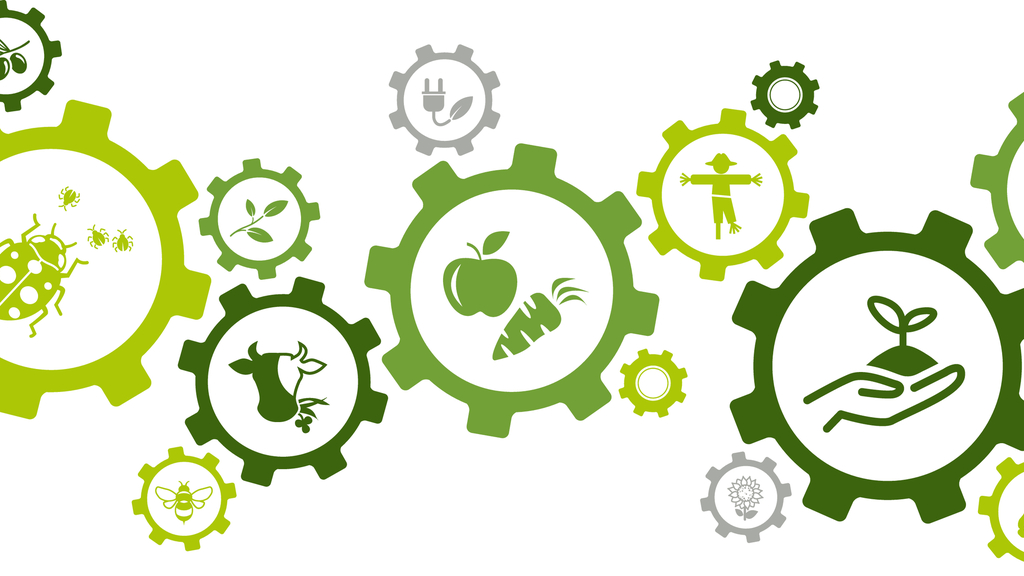Joanna Lewis is the Director of Policy and Strategy at the Soil Association.
COVID-19 has shaken our complacency about where our food comes from to the core. Supermarket shelves may have refilled for now, but empty baskets in fresh produce aisles remain a real prospect. We are starting to count the cost of our reliance on Spain and the Netherlands – who, like us, are suffering shortages of fruit and veg pickers - for so much of the fresh food we eat as a nation.
But does that mean food security should dominate our post-Brexit UK farming policy? Should the UK’s Agriculture Bill, with its focus on paying farmers to protect the environment, be torn up and replaced with a shiny new Food Security Bill?
Let’s not throw the baby out with the bathwater. The climate and ecological emergencies that framed the thinking behind the UK’s new Agriculture Bill have not gone away. Now is not the time to throw away the precious consensus, led by farming bodies as much as by environmental groups, that UK farming can and must play a full role in being part of the climate change solution, rather than the problem.
If we abandon that consensus and fail to act on reversing damage to climate and nature, we are storing up further shocks for our food system.
What matters for food security?
We must not fail to learn the lessons of COVID-19 for food security and resilience. But that does not mean a return to paying farmers just to be farmers, or to over-produce commodity crops like maize, which are often destined to be fed to animals or burned for power as biofuels. Too often these crops are grown intensively, causing damage to soils, climate and nature through heavy reliance on fertilisers and pesticides. And they do not contribute to healthy diets. We do not need more of this type of farming for our food security.
The questions we need to ask are: is UK farming diverse enough to feed its people a healthy diet in times of crisis? How do we build on the great examples of more resilient local and direct food networks springing up everywhere and help them persist beyond the crisis? Is our food system undermining food security by making crises – from pandemics to droughts to pollinator extinctions - more likely? This pandemic has proved that disregarding humanity’s relationship with nature and the welfare of animals we eat can have dire consequences. Food production that doesn’t safeguard the natural world is not secure.
Top of the resilience ‘to do list’ should be a clear UK Government ambition to at least double UK fruit supply - and grow the UK share of nuts, pulses and vegetables as recommended by the RSA Food, Farming and Countryside Commission. We only grew 17% of fruit and 53% of veg we ate in 2018 so bold action is needed to grow more UK horticulture, alongside boosting demand via seasonal menus in schools and hospitals. Coronavirus has revealed the skills gap for horticulture across the UK, with shortages of pickers still facing many farms despite specially chartered flights from Romania. Our research has shown how the sector and government need to come together to improve conditions and perceptions of horticultural careers for British workers.
The ticking timebomb of antibiotic resistance – which threatens to take the NHS back 200 years and make minor operations life-threatening - should also be a focus for UK government leadership globally. Through the Alliance to Save Our Antibiotics, the Soil Association campaigns for the phase-out of intensive livestock systems that require preventative antibiotic use and their replacement with high welfare systems like organic that can keep animals in good health.
Agroecology works for climate, nature, health and resilience
The Agriculture Bill should not be torn up. Instead, it should be amended to set clear goals for healthy food security and resilient supply chains at the same time as transitioning UK farming to net zero, nature-friendly systems.
‘Public money for public goods’ - paying farmers to look after the environment, water and air quality - should remain the fundamental principle of the Agriculture Bill. But this needs to be achieved across the whole farm in tandem with healthy, diversified food production. Growing wildflowers around an intensively sprayed monoculture will not be enough to restore nature on the scale we need. Nor will sparing one field for woodland and building an intensive poultry unit on another. Government should support farmers to care for the whole environment, not just part of it.
The Soil Association is calling for a farmer-led ten-year transition to agroecology to balance the priorities of climate, nature and healthy food production. The French think tank IDDRI’s Ten Years for Agroecology in Europe model shows that healthy food security and an effective response to the climate and nature emergencies can indeed go hand-in-hand. The Food, Farming and Countryside Commission and IDDRI will publish an agroecology transition model for the UK later this year.
The UK has a unique opportunity for leadership if it supports farmers to make this transition. While France has officially made agroecology the cornerstone of its agricultural policy, it will take reform of Europe’s Common Agricultural Policy to achieve this at scale in practice. Europe’s policymakers are watching the progress of the UK’s Agriculture Bill and Environmental Land Management Scheme with keen interest. There is too much at stake for climate, nature, health and resilience to throw this opportunity away.
Farmers are the environmental leaders we need
The environmental leadership that UK farming leaders have shown in recent years, and the strong solidarity shown by environmental groups with UK farmers around trade deal risks, means that it is no longer appropriate to pit farmers against environmentalists in these debates.
Farmers, environmentalists and public health leaders can only achieve their shared goals together. United, we can steer the UK farming transition we so urgently need towards resilient, diverse, healthy food production for climate, nature and health.
Are you a decision-maker in government, industry or the third sector responding to the coronavirus crisis? Apply now to our virtual Policy Fellowship Programme for access to University of Bath research and expertise. Learn more.
All articles posted on this blog give the views of the author(s), and not the position of the IPR, nor of the University of Bath.





This is our last chance. I fully support EU on their stance on the environment and farming. Farmers must reduce drastically the use of pesticides/herbicides, use companion planting, but more importantly be given subsidies/encouraged by incentives to go organic.
Please see Georgina Downs' tweet here: https://twitter.com/GeorginaDowns43/status/1258749594374221824
Support vital amendment New Clause 5 (NC5), Caroline Lucas
If anyone wishes to discuss the history of "reduction", please contact Georgina.
Commercial and recreational drone use in the UK inquiry (2019)
"Scope of the inquiry
This inquiry will look at the ethical and safety implications of the growing use of civilian drones, of all sizes, across the UK.
Drones have had a range of positive impacts across a variety of industries, from commercial photography and aerial surveying, through to crop spraying and parcel delivery. However, following increased recreational popularity, there have been several suspected drone incidents, including dozens of ‘near misses’ between drones and aircrafts.
Following two previous consultations on drone safety and security and incursions at Gatwick and Heathrow airports the Government is planning to bring forward a ‘Drones Bill’ in 2019."
I raised questions regarding drones and pesticide spraying in relation to the above Parliamentary Inquiry. However, the Committee decided to publish my submittance in an alternative Inquiry, the UK telecommunications infrastructure inquiry. This dates back to June 2019.
As far as I am aware there are two related current inquiries:
1. https://committees.parliament.uk/work/264/uk-telecommunications-infrastructure-and-the-uks-domestic-capability/
2. https://committees.parliament.uk/work/89/broadband-and-the-road-to-5g/
Does anyone have any thoughts?
https://www.weforum.org/agenda/2020/01/5g-is-about-to-change-the-world-in-ways-we-cant-even-imagine-yet/
"Agriculture: 5G technologies’ promise of expanding and accelerating connectivity without sacrificing battery life will be particularly beneficial to farmers, and are already improving veterinary diagnostics, crop protection, reduction of fertilizer use and smart irrigation systems that conserve water. 5G is also expected to provide new solutions to the disparity between broadband Internet connections in cities and those in some rural areas, the geographical digital divide."
Baby Milk Action and other NGOs have raised concerns about "preferential access" with regard to the World Economic Forum.
"We the undersigned call on you to terminate the recently signed United Nations-World Economic Forum strategic partnership agreement.
We are very concerned that this WEF-UN partnership agreement will de-legitimize the United Nations and provide transnational corporations preferential and deferential access to the UN System. The UN system is already under a big threat from the US Government and those who question a democratic multilateral world. However, this corporatization of the UN poses a much deeper long-term threat, as it will reduce public support for the UN system in the South and the North."
Meanwhile, I read recently that "BlackRock to advise EU on green regulation for banks". I will try and contact someone with more information.
Please does anyone know anymore or does anyone have any suggestions with regard to monitoring the situation? Many thanks.
Simply want to say your article is as surprising.
The clarity in your post is simply cool and i could assume you're an expert on this
subject. Fine with your permission allow me to grab your
RSS feed to keep up to date with forthcoming post. Thanks a million and please keep up
the rewarding work.
Hi there all, here every one is sharing these experience, thus it's good to read this blog, and I used to visit this
webpage daily.